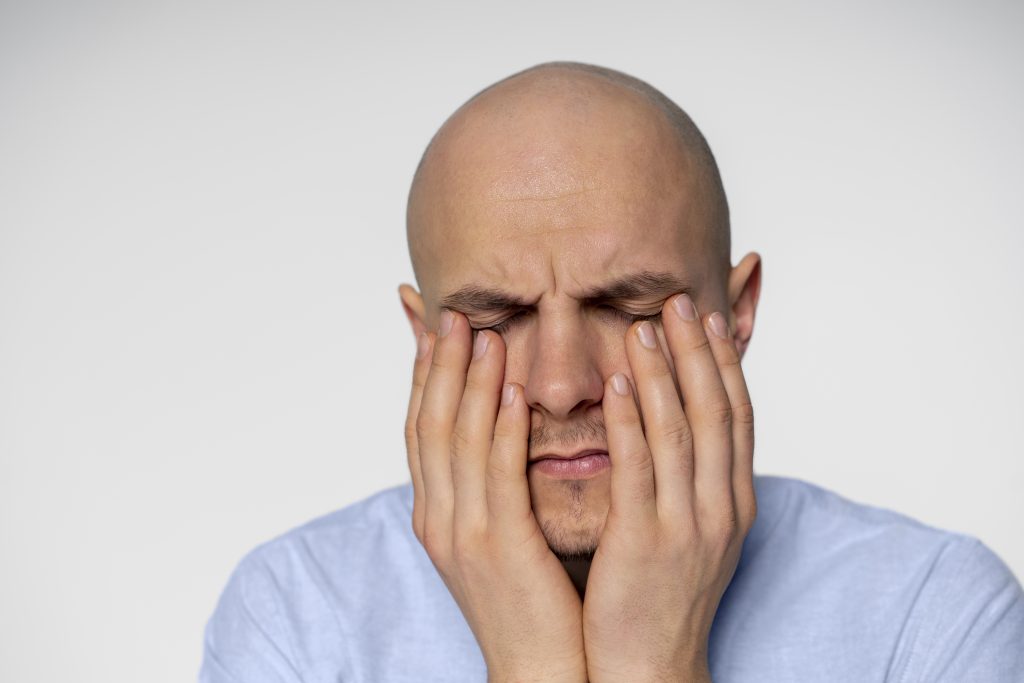Mental Illness in Australia
In the past, people who were experiencing a mental illness had been isolated and stigmatised by society. In recent years though, and especially following the pandemic, attitudes have changed dramatically. People are now actively encouraged to come forward, express their issues, and to find the help that they need and deserve. Mental health issues such as anxiety, depression, bipolar, and schizophrenia are more recognised and having more resources being dedicated to them. With this surge in recognition also comes a surge in demand for those wanting to be a part of the industry and to help make a difference in people’s lives and those around them.

The numbers of mental illness
1 in 5 Australians suffer from some sort of mental illness every year, which equates to approximately 4 million people. According to the National Study of Mental Health and Wellbeing undertaken by the Australian Bureau of Statistics in 2020-2021, 20 percent of Australians aged 16-34 experienced psychological distress, compared to just 9 percent of those aged 65-85. During the same period, 3.4 million Australians aged 16-85 years saw a professional for their mental health. 13 percent of people saw a GP and 8 percent saw a psychologist. Further to this, over 3000 Australians die from suicide each year with statistics showing that in 2017 alone, 65,000 people attempted suicide. The economic impact of mental health issues in Australia are estimated to be up to $60 billion per year in health care, lost productivity, and other costs. These statistics outline just how serious an issue mental health is in Australia, and how important it is to grow programs, organisations, and the mental health workforce to deal with it.

What types of mental illness affect Australians?
A mental illness, according to this Australian government website, “is a health problem that affects people’s thoughts, mood, behaviour or the way they perceive the world around them”. Anxiety is the most common form of mental health issue affecting Australians, with 1 in 4 experiencing some form of anxiety throughout their lives. Anxiety in general makes individuals feel worried or nervous and can affect their ability to function in their daily lives at home or work. The types of anxiety disorders experienced include:
• Generalised anxiety disorder: people worry excessively about a range of seemingly ordinary issues like finances, health, and work
• Social anxiety disorder: this form of anxiety causes people to avoid social or performance situations for fear of being embarrassed.
• Panic disorder: this disorder is exhibited by regular panic attacks. A panic attack is a sudden episode of irrational fear, shortness of breath, dizziness, and other intense physical symptoms.
Depression is another prevalent mental health issue that has an affect on the lives of Australians, with 1 in 16 being impacted by it each year. The symptoms of depression include feeling sad, overwhelmed, and an intense feeling of hopelessness. Depression also causes people to exhibit physical signs, such as sleep problems, a feeling of constantly being rundown, and a changed appetite. Like anxiety, depression can present itself in the form of various depressive disorders. These include:
• Melancholic depression: this is a severe form of depression that has both strong physical and emotional symptoms.
• Psychotic depression: the main signs of psychotic depression include hallucinations, paranoia, and delusions.
• Bipolar disorder: bipolar disorder is a chronic condition, which is exhibited by strong swings in mood, ranging from manic or hypomanic (less severe than a full manic episode) episodes which are characterised by periods of extremely high energy, agitation, and a reduced need for sleep, to severe depressive episodes that may include suicidal thoughts, lack of motivation, difficulty concentrating, a loss of interest in things you would normally enjoy, and extremely low moods. 1 in 50 Australians are affected each year and first shows signs in teenagers and young adults.

Schizophrenia is a mental illness that causes psychosis and is possibly one of the more stigmatised mental illnesses that 1 in 100 people in Australia people suffer from. Like bipolar, schizophrenia begins to show symptoms in late adolescence and early adulthood. Schizophrenia is characterised by individuals having a distorted sense of reality where they may hallucinate, suffer from delusional thoughts such as believing they are being followed, and be in a confused state. Signs that someone may be schizophrenic are:
• Laughing or crying inappropriately
• Starts talking or writing very fast
• Talks less than normal
• Becomes angry, aggressive, or suspicious
People who have schizophrenia, depending on when it was diagnosed, can completely recover with the proper treatment. Treatment usually involves anti-psychotic medication as well as assistance from a range of medical professionals such as a psychiatrist, social worker, and a psychologist.
Mental illness comes in many shapes and forms and affects people in numerous ways. The conditions listed above are just a small sample of those that people can suffer from and represent what you may deal with if working in the mental health industry.

The jobs in mental health
A career in mental health gives you the opportunity to change someone’s life, to help them get on the path that they desire, and to help them overcome their challenges. It is a career path that will not be automated or taken by computers in the foreseeable future, and so finding a role in it can set you up for a secure future. The qualifications required to enter into mental health start at a certificate IV in mental health or a diploma in mental health and once attaining one of these, the door is open to many opportunities for career progression. Some of the jobs available after completing one of these certifications include:
• Community rehabilitation and support worker: As a community rehabilitation and support worker you will assist a variety of people with their issues. These people can include deaf or blind individuals, people with mental health issues, drug or alcohol addictions, and people recovering from injury. You will help people with finding housing, employment, and sustaining their own independence. The average annual pay for a community rehabilitation and support worker is $59,000
• Mental health outreach worker: Mental health outreach workers provide generalised support to people who are living with a mental illness. They act as a go between their clients and a support organisation. They also help implement community programs focusing on mental health, mental illness, and psychiatric disability. The average salary of an outreach worker in Australia is $75,000 per year.
• Mental health counsellor: Mental health counsellors work with a variety of different groups, ranging from individuals, couples, and families. They assist people with problems which may be causing them stress such as money issues, relationship problems, and domestic violence. As the name suggests, they also provide support to people who may be experiencing a mental illness such as anxiety, depression, or post-traumatic stress disorder (PTSD). Mental health counsellors can also help people deal with issues such as anger management, grief and loss, alcohol and drug addiction, and dealing with eating disorders such as anorexia or bulimia. Patients are referred to a counsellor by their GP or they can find one for themselves. The average annual salary for a mental health counsellor is $62,000
There is a broad range of careers in mental health, many of which are not listed here. Should you want to have a job in the industry, you will no doubt find one that suits your interests and skill set.

What sort of person is suited to the industry?
The key skills and traits that are required for working in mental health include but are not limited to being able to empathise with people, having a caring personality, patience, great listening skills, possessing strong interpersonal skills, using tact in dealing with sensitive topics and situations, the ability to de-escalate hostile situations, and having problem solving and critical thinking skills. As some of these jobs require you to work in difficult situations, workers in the industry need to have a thick skin and maintain their professionalism in trying scenarios. Mental health workers must also have strong communication skills to be able to liaise with various entities involved in caring for clients. These entities can include government, community organisations, volunteer groups, respite care, and home-based outreach. A relatively new skill is the ability to maintain your empathy, professionalism, and rapport with clients through phone or video calls as telehealth services become a mainstay after the covid pandemic.

Mental health is a serious issue, which inflicts costs on both the economy and society. It can emerge in various forms and for many different reasons and can affect people of all types. Working in mental health is a challenging and rewarding occupation and is something that you can do which can make a real impact. It requires you to have true dedication, empathy, and care for other people but at the end of the day will leave you with a true sense of making a difference.
https://www.lifeline.org.au/
https://www.beyondblue.org.au/
https://www.blackdoginstitute.org.au/
https://kidshelpline.com.au/












